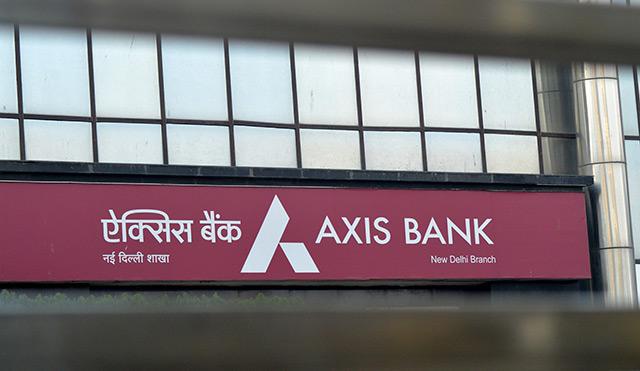India's third-largest private-sector lender Axis Bank snapped up beleaguered digital wallet firm FreeCharge for $60 million (Rs 385 crore) last week. In the process, it pipped other suitors such as bigger digital wallet firms Paytm and MobiKwik, e-commerce major Amazon, payments firm PayPal, Airtel Money and South Africa's Internet group Naspers.
Though FreeCharge is a popular wallet brand with decent recall, it hasn't demonstrated enough intent of late. Unlike rivals Paytm and MobiKwik, it has failed to capitalise on the digital payments boom following the government's demonetisation move. To be sure, a lot of that languor can be traced to the upheaval that its mother firm Snapdeal has been in the midst of.
That said, it's worth examining what exactly prompted Axis Bank to buy FreeCharge at a time when the latter is bereft of the energy it takes to upend the pecking order. More important, even though Axis paid a mere 15% of the $400 million that Snapdeal forked out for FreeCharge in 2015, is the price tag justified?
Fairly valued?
Sanchit Vir Gogia, chief analyst and founder, Greyhound Research, feels the price paid by Snapdeal for FreeCharge was steep. "That was an inflated price and I expected the valuation to drop. When a company is being sold for a sixth of the price it was bought at, it means there was some gross miscalculation about its valuation. Rs 385 crore is the right price for FreeCharge," he says.
Following the acquisition, Axis Bank will get access to FreeCharge's 50 million wallet users as well as over 2 lakh merchants. The digital wallet will also double up as a captive customer pool for the lender, which can now look to on-board them, say experts.
"Axis Bank will get access to FreeCharge's sellers and partners. Moreover, FreeCharge is a more feature-rich wallet that Axis Bank can further integrate with unified payments interface (UPI)," Gogia explains.
Though it's tough to put a figure on how much additional revenue or traction it will translate into, there is no doubt that Axis Bank will gain from FreeCharge's wide customer base.
"A lot of knowhow, market data and research will be available with FreeCharge," says an industry expert who works at a law firm and does not wish to be identified.
However, what cannot be overlooked is that FreeCharge's strength lies in utility payments, a segment where margins are wafer-thin. That would mean loose change for a company of the magnitude of Axis Bank.
But it's not as simple as it appears. Gogia says the largest e-commerce vendors are not Flipkart or Snapdeal, but the banks themselves because they are busy selling a lot of small-ticket transactions. "Although banks have been helping customers with NEFT and IMPS, they don't have anything customer-facing at a scale like FreeCharge's."
Tech edge, synergies
It's a known fact that most online consumer-facing ventures in India boast of robust and talented tech teams, a pain point for big, traditional businesses like Axis Bank.
"Axis Bank might have its own wallet and UPI, but it will learn a lot from FreeCharge in terms of technology and the way it approaches the market," the co-founder of a top fin-tech company told VCCircle on the condition of anonymity.
In fact, FreeCharge could prove a shot in the arm for Axis Bank, which has a much larger retail footprint with over 4.3 lakh point-of-sale machines. Besides, it has been looking to step up its payments play via partnerships with Samsung Pay and Kochi Metro.
"With the Axis-FreeCharge merger, there is consumer base on both sides. There is product and technology on FreeCharge's side while Axis has licences. So, the investments they would require would be much less than, say, what Paytm would require," the co-founder explains.
Firepower to take on competition?
According to a study by trade body Assocham, India's mobile wallet market is expected to hit Rs 1.5 lakh crore by financial year 2021-22 from the current Rs 150 crore.
The sector's potential was evident in the period following the government's high-note ban, when digital wallet usage went through the roof. All wallet companies clocked stellar growth, but market leader Paytm capitalised on the opportunity the most. Soon after, it was rewarded with a $1.4-billion funding round from the deep-pocketed SoftBank, which joined China's Alibaba as a major shareholder in the firm.
Gurgaon-based MobiKwik is also in advanced talks with US-based investment management firm BlackRock Inc. and Indian banks to raise more than $100 million (Rs 650 crore).
With marquee investors willing to pump more into Paytm and MobiKwik, does the Axis Bank-backed FreeCharge have a realistic shot at causing an upset?
"Axis Bank will up the ante and start taking on Paytm and other players. It will be cut-throat competition and we will see a lot more consolidation in the space," the industry expert quoted above said.
Besides, the backing of an established bank can enhance the brand image of a digital product like a wallet immensely.
"By itself, wallet is a small business without UPI and the banking system involved. When a transaction is backed by a bank, people get the confidence of making large transactions. That will make a difference," Gogia says. "While Paytm is doing fantastically well in the wallet business, pivoting to a bank is not that straightforward...We should not oversimplify this journey for Paytm," he adds.
All in all, FreeCharge's takeover by Axis Bank will make India's digital wallet race more interesting, regardless of who goes past the finish line first.






